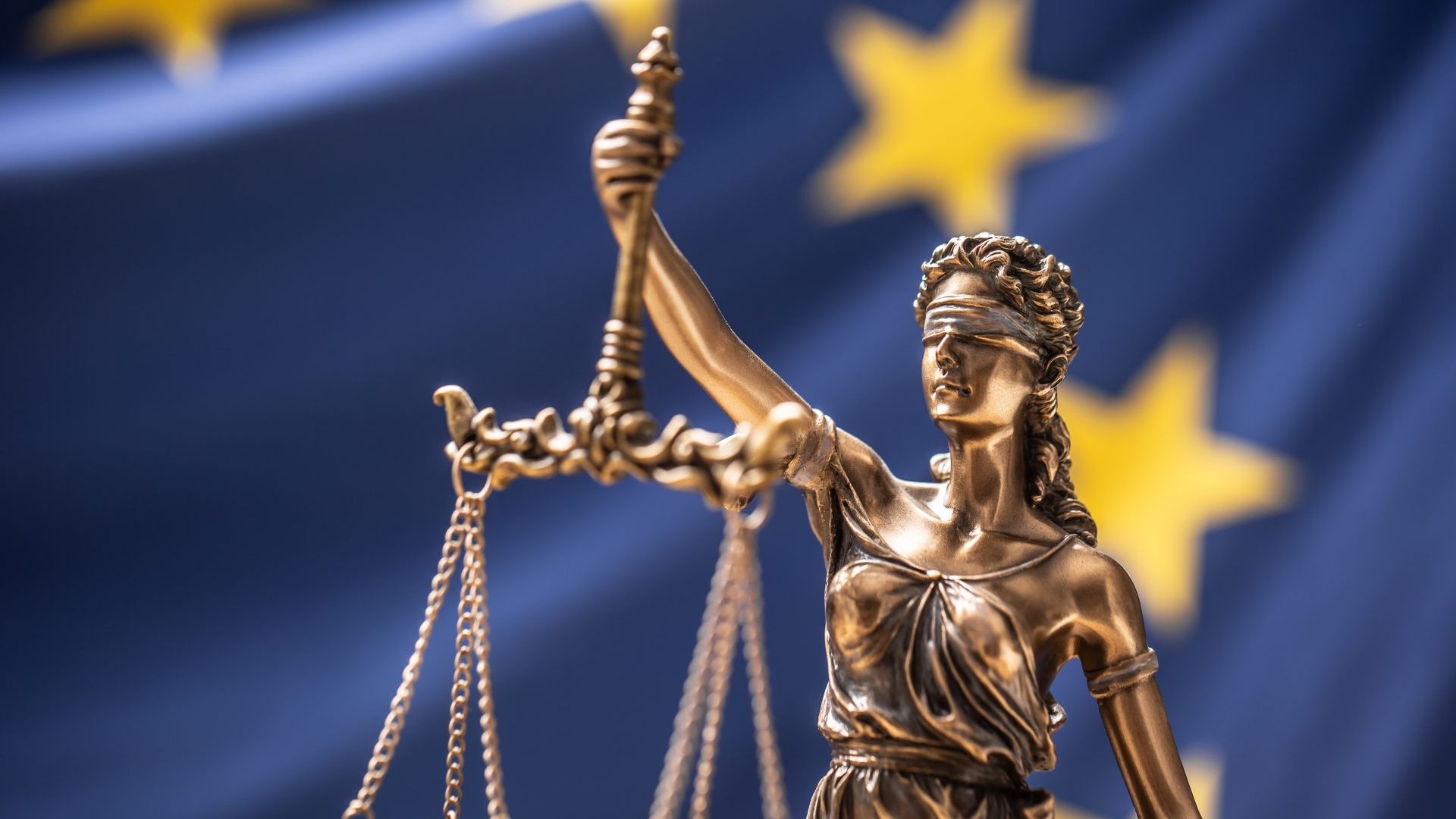The Conservatives, flailing in the polls, struggling to find a solution to the cost-of-living crisis, lashing out at straw man ‘leftie lawyers’ and ‘eco zealots’, have run another increasingly desperate flag up their pole – leaving the European Convention on Human Rights.
The BBC reported yesterday that the Tories are likely to campaign to leave the ECHR at the next election if its Rwanda flights continue to be blocked. Immigration minister Robert Jenrick, asked about it on Times Radio, greased its wheels by saying they would “do whatever is necessary ultimately to defend our borders and to bring order to our asylum system”.
Like pretty much everything Rishi Sunak’s zombie government says and does now, mooting leaving the ECHR is less to do with good, desirable policy and more to do with finding something – anything – to win the general election. Common wisdom is that Boris Johnson’s 2019 victory was brought about by three factors – Johnson himself, Jeremy Corbyn and Brexit. The former is gone, now phoning in mundane columns about cheese to the Daily Mail. Corbyn is no longer a Labour MP and reportedly mulling an independent, possibly vote-splitting run for London mayor.
Which leaves Brexit. Is it possible that Sunak sees the small boats issue as an opportunity to replay the old tunes and ride to victory at the next general election on a pledge to withdraw from another continental organisation, portraying it, perhaps, as a post-Brexit ‘tidying up’ exercise? It would certainly warm the cockles of editors’ hearts at the Telegraph, Mail, Express and Sun, who can be relied upon to portray it as unfinished business with Brussels. The unnamed minister briefing the BBC claimed the Rwanda decision was “probably” punishment for Brexit. Nigel Farage, scrabbling for relevance until his bank helpfully intervened, said in April that leaving the ECHR would be “Brexit times two”. But it would be a mistake.
Let’s start with what the ECHR isn’t. It isn’t the EU. It is an international human rights treaty which protects the rights of everyone within the 46 states that belong to the Council of Europe. Founded after World War II to protect human rights and the rule of law and promote democracy, British MP and lawyer Sir David Maxwell-Fyfe led the drafting, and the UK was the first country to ratify it in 1951. Unlike the EU, all countries across Europe, including Turkey and Ukraine, are members. The only states which are not are Belarus and Russia. To put that another way: were Sunak to pull the UK out, he would stand alongside only Vladimir Putin and Alexander Lukashenko. The optics, as they say, would not be great.
But the practical effects would be greater. For a start, is Sunak really keen for his second (or first, depending on how you see it) term in office to be dominated by wrangling over Northern Ireland? Because the Belfast Agreement, as a briefing by the think tank UK in a Changing Europe explains, “requires the ECHR to be part of the law in Northern Ireland, allowing ‘direct access to the Courts’ and ‘remedies for breach of the Convention’.” That position has not changed as a consequence of the Windsor Framework. It is unlikely to play well with the US under its current leadership, too. Perhaps Sunak is waiting for another president, one with less regard for international bodies?
If Northern Ireland is not enough, how about disrupting relations with the EU still further? If the UK withdraws from the ECHR, the EU would, under the terms of Johnson’s Brexit deal, be well within its rights to terminate important provisions concerning international law enforcement and judicial cooperation in criminal justice matters under Article 692, not only further isolating the UK but having potentially serious repercussions for tackling crime.
And finally, how does it sit with how Britain sees itself in the wider world? Because, as a recent paper from Chatham House points out, the government’s own ‘Integrated Review Refresh’, published just this year and claiming to be “responding to a more contested and volatile world”, reaffirms the UK’s commitment to the rule of law, “respect for the fundamental principles of the UN Charter and international law”, and “universal human rights that underpins our democracy”. How does that square with leaving the ECHR? How does the UK tackle aggression from Russia and China when it sits with the former outside Europe’s prime human rights body?
We have been here before – time and again. In 2015 David Cameron, asked whether the UK would pull out of the ECHR should he face opposition to his bid to scrap the Labour-era Human Rights Act, said he would “rule out absolutely nothing in getting that done”. In 2016 his successor, Theresa May, told the Telegraph she would fight the 2020 general election on plans to take Britain out. In the event, her party took her out first.
Johnson — who had previously described the ECHR as “one of the great things we gave to Europe” — was happy to indulge in pull-out chat over the blow to his Rwanda policy. And even Liz Truss, who had less time to indulge then most, made clear during her 2022 leadership election that she was “prepared” to pull the UK out of the convention.
In all likelihood this talk will have all the lasting impact of that of Sunak’s successors. But it is a reminder that, in a desperate attempt to get an agreeable editorial in the Sun, win over some of his more recalcitrant MPs on the right and move the polling dial any way he can, the prime minister is playing with the UK’s standing in the world. That is, unless he really wants his first post-victory international visit to be to Minsk?











